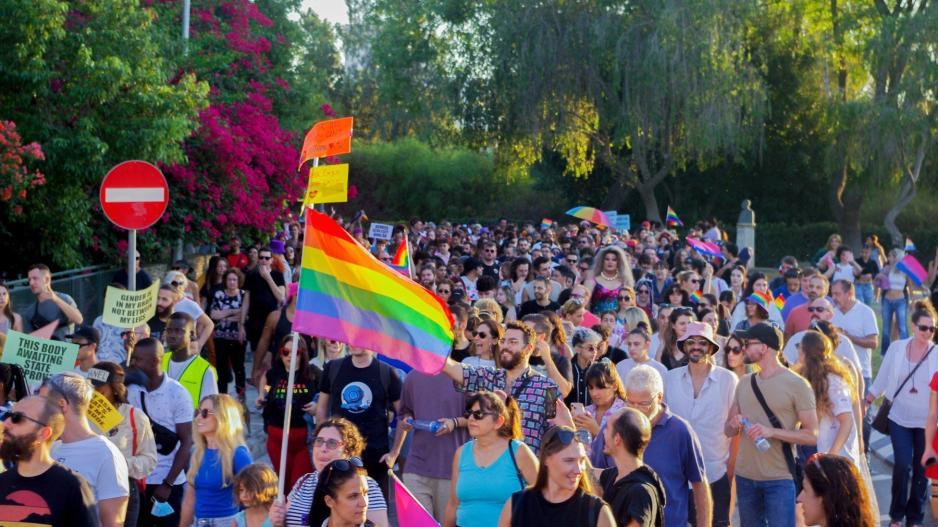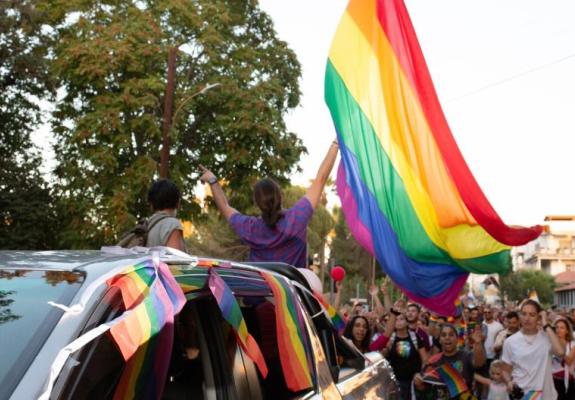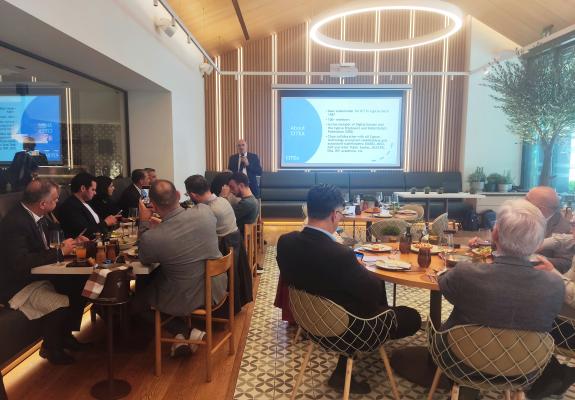The History of Pride in Cyprus
Tracing the Legal, Social, and Cultural Milestones of Cyprus's LGBTQ+ Movement
Pride, as it is celebrated today, finds its roots in the Stonewall Riots of June 1969 in New York City. These riots were a series of spontaneous demonstrations by members of the LGBTQ+ community in response to a police raid at the Stonewall Inn, a gay bar in Greenwich Village. The riots marked a turning point in the LGBTQ+ rights movement, galvanizing the community to advocate more vocally for their rights and recognition. In the aftermath of Stonewall, several LGBTQ+ advocacy groups were formed, and the first Pride marches took place in New York City, Los Angeles, and Chicago on June 28, 1970, to commemorate the anniversary of the riots.
Throughout the 1970s and 1980s, Pride events spread to other cities in the United States and around the world. They became platforms for visibility, advocating for equal rights, and addressing pressing issues such as the HIV/AIDS epidemic, which disproportionately affected the LGBTQ+ community. The marches evolved into annual parades and festivals, incorporating cultural and political elements that reflect the diverse aspects of the LGBTQ+ experience.
By the 1990s, Pride had become a global phenomenon, with celebrations in major cities across every continent. The events varied in size and style, reflecting the cultural and political climates of their host countries. In some places, Pride parades were met with resistance and hostility, while in others, they were embraced as joyous celebrations of diversity and inclusion.
In recent years, Pride has continued to grow in visibility and significance. Major corporations, political leaders, and public figures now participate in Pride events, signaling broader societal acceptance of LGBTQ+ rights. However, Pride remains a crucial movement for advocating against ongoing discrimination, violence, and legal inequalities faced by LGBTQ+ individuals worldwide.
The history of LGBTQ+ rights in Cyprus is relatively recent, and has been complex and transformative, particularly in the last few decades. Historically, Cyprus was influenced by conservative and traditional values, largely shaped by the Greek Orthodox Church, which played a significant role in public opinion and politics. The decriminalization of both male and female same-sex sexual activity in 1998 marked a significant milestone, influenced by Cyprus's bid to join the European Union, which necessitated reforms in human rights legislation, with significant progress being made primarily in the 21st century. The conservative and traditional values prevalent in Cypriot society historically suppressed open discussions about LGBTQ+ issues. It wasn’t until the early 2000s that LGBTQ+ activism began to gain momentum.
The first significant step towards organized LGBTQ+ advocacy in Cyprus was the formation of the organization “Accept – LGBT Cyprus” in 2010. This group aimed to provide a platform for the LGBTQ+ community to voice their concerns and advocate for their rights. Accept – LGBT Cyprus played a pivotal role in raising awareness about LGBTQ+ issues and pushing for legal reforms.
The first-ever Pride parade in Cyprus was held in Northern Nicosia (Turkish occupied) on May 17, 2014 organized by Queer Cyprus, followed by the Pride parade on May 31, 2014, in Nicosia (Republic of Cyprus), organized by Accept – LGBT Cyprus. This historic event drew around 4,500 participants and marked a significant step forward for LGBTQ+ visibility and rights in the country. The theme of the parade was “Speak Love,” highlighting the need for acceptance and love for all individuals, regardless of sexual orientation or gender identity. The event received extensive support from various political parties, international organizations, and foreign embassies, demonstrating a broad coalition of support for LGBTQ+ rights.
In 2022, individuals from across Cyprus gathered for a historic "United by Pride" event. This marked the first intercommunal, self-organized, and self-funded grassroots Pride in Cyprus. Co-hosted by Queer Collective Cy, Queer Cyprus Association, LGBT-PHILIPINAS, LGBT Africa, and the LGBTQIA+ & Allies Students Club of the University of Cyprus, the event celebrated diversity and solidarity within the LGBTQI+ community. The day commenced with two simultaneous marches from Eleftheria Square and Kuğulu Park, converging at the Home for Cooperation in the Buffer Zone.
The success of the first Pride parade in Cyprus paved the way for further advancements in LGBTQ+ rights. In 2015, the Cypriot government passed a civil partnership law, granting same-sex couples many of the same legal rights as heterosexual couples. This legislation was a significant milestone, reflecting a shift towards greater acceptance and equality. More recently, in May 2023, Cyprus banned conversion therapy, marking another significant step in protecting LGBTQ+ individuals from harmful practices.
Despite these legal advancements, the LGBTQ+ community in Cyprus continues to face challenges, particularly in terms of social acceptance. Reports of discrimination and violence against LGBTQ+ individuals persist, and there remains a need for comprehensive anti-discrimination laws covering areas beyond employment.
Since the inaugural parade in 2014, Cyprus has hosted annual Pride events, each year drawing larger crowds and greater visibility. These parades have become a symbol of resilience and progress for the LGBTQ+ community in Cyprus. They serve not only as celebrations of diversity but also as platforms for raising awareness about ongoing issues and advocating for further legal reforms.
The themes of these annual parades have varied, focusing on different aspects of LGBTQ+ rights and visibility. For example, the 2017 parade emphasized the need for comprehensive anti-discrimination laws, while the 2019 event highlighted the importance of mental health and support for LGBTQ+ individuals.
This year, the Cyprus Pride Festival 2024 will run from May 10 to June 1, culminating in the Pride March at the Nicosia Municipal Garden. It marks 10 years since the first parade. The festival will include a series of events emphasizing the strength found in embracing all identities within the LGBTQ+ community. A significant event during the festival is the "United by Colors" MoU signing between Accept LGBTI Cyprus and Queer Cyprus, symbolizing intercommunal solidarity and cooperation between these organizations.
Despite the progress made, the LGBTQ+ community in Cyprus continues to face several challenges. Social stigma and discrimination persist, and there is a need for more comprehensive legal protections, particularly concerning transgender rights and the recognition of same-sex parenting.
Future advocacy efforts are likely to focus on these areas, as well as on continuing to promote social acceptance through education and visibility. The role of LGBTQ+ organizations, such as Accept – LGBT Cyprus, remains crucial in driving these changes and supporting the community.
The history of Pride in Cyprus is a testament to the resilience and determination of the LGBTQ+ community. From the decriminalization of homosexuality in the late 1990s to the vibrant Pride parades of today, Cyprus has made significant strides towards equality and acceptance. While challenges remain, the progress achieved so far provides a strong foundation for continued advocacy and positive change. The annual Pride events in Cyprus are not only celebrations of diversity but also powerful reminders of the ongoing struggle for LGBTQ+ rights and the importance of solidarity and visibility in achieving a more inclusive society.






